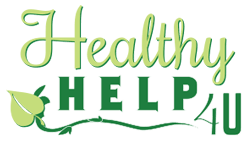Physical Health
What I'm about to tell you is the most exciting news ever:
Our BODIES are SELF HEALING MACHINES, and they will do whatever they can to ensure our health and longevity. Learning how to best care for our physical body, is a win-win. Why? Because if we care for our body, we get to be here on planet earth longer. And learning to care for our self in a loving and supported way changes our outlook on our life to a beautiful and elevated level - like breathing in God's breath.
The trillions of cells that make up our body work best when properly supplied with nutritional dense foods and core cellular nutrition and stress-free thoughts. When we give our body what it requires, it has a priority list from which to work from and will begin repairing what's first on it's list. And guess what? It gets right to work so every part of us can be in perfect working order as soon as possible.
Do you want to start a new chapter in your life and embrace all things natural? In {this digital|this} age, it's perfectly understandable to aspire to a more organic lifestyle. Here are a few key areas worth assessing so you (and your family) can live as close to nature as possible.
What are you eating?
We all have our go-to snacks for an instant perk-up, but that one piece of chocolate or bag of lollies delivers a burst of blood sugar energy that quickly dissipates and becomes a {blood sugar} crash. This will leave you flat for the rest of the day and {much|a million times} more likely to reach for more sugary drinks and {sweet} snacks.
When it comes to cleaning products, where possible, {try and} use natural products like baking soda and vinegar - your grandma's cleaning regime {probably} has {much|a lot} to offer if you want to live an organic life.
Making a Difference! Healing from Cancer!
Getting here to this place to help you came by me learning how to best care for myself as I moved through a ten-year journey with Cancer. It is vital to understand how to blend the two paths, so that living a healthy, happy life even while clearing the body of Cancer is in motion.
What is a Naturopath? A naturopath is a trained individual that teaches health not illness nor medicine. Looking at the entire body and mind in a natural healing approach is the norm. It is a drugless system in which they may work with herbs, homeopathic, median points, accupressure, sun, heat, air, water, massage, energy medicine, etc. and/or any combination thereof.
WHAT IS NATUROPATHY?
Naturopathy is a multidisciplinary approach to health care that recognizes the body's innate ability to heal itself. A Naturopath will examine all aspects of your diet and lifestyle that may adversely affect your health, moving well beyond the symptoms of a complaint. This philosophy is based on the premise that the body contains a healing force, which can be stimulated with nutritional dense foods, natural supplements, clean water, fresh air, appropriate exercise, adequate rest and relaxation, a positive attitude and peace of mind.
My 25+ years experience as a medical intuitive and a naturopathic practitioner has been a beautiful blessing and God has blessed me with many personal experiences and formal training to best help you.
Achieving physical health requires more than upgrading food, water, sleep, herbs and essential oils. Yes all these things help!
The same nutrition that prevents disease in its early stages can also halt or reverse disease in its later stages. - The China Study, T. Colin Campbell PhD
Did you know that throughout our beautiful planet there are over 10,000 herbs, which are used in food, tea, wines, medicines, etc. They have been used for thousands of years before Christ. Conceivably since the time humans first began to roam planet earth. The use of herbs was the only way that people could heal thus restore their health.
Going back 1,600 years before Christ ancient Egyptian papyrus describes in great detail the use of certain herbs, like Wormwood.
Hippocrates, the father of modern medicine, implemented herbs, considered herbs magic and used them as the basis of medical science.
Throughout history herbs have had an effectiveness and usefulness in treatment of all kinds of diseases and conditions including mental health. Herbs work as well today as they did in the past. If these healing plants didn't work, herbs wouldn't be used by 62% of the population. Guess what? It's people with higher education levels that are making these choices to use complementary and alternative modalities.
A weekly publication, The Week, "Americans spend $34 billion a year on various alternative therapies not covered by insurance, including herbal capsules, homeopathic treatments, acupuncture, and yoga and tai chi classes." USA Today
Why is this amount of money being spent? Because it works! The top ten herbs studied are garlic, hawthorn, ginkgo biloba, ephedra/ma huang, licorice, bilberry, Echinacea, milk thistle, astragalus, and ginseng.
The body responds really well to herbs because of its natural state as compared to drugs. Do you need to be careful using herbs? YES, but not afraid of herbs. There's lots of information out there as well as lots of knowledgeable people. So please do you own due diligence and chose the best.
My preference is using organic herbs both in cooking and medicinally. Here is a link to a company that I use for purchasing herbs, oils, etc.
It's really quite amazing that these wonderful, magical herbs are at our fingertips and may even grow in your own backyard.
Did you know? The standard American diet primarily consists of sugars, meats, carbs and dairy. The food is filled with chemicals and dyes and very little nutritional value whatsoever. This is one reason for the high percentages of obesity and depression in the US.
Our bodies and minds crave nutrition, but its not getting it, so its only choice is to eat more food, hoping at some point the nutritional demands will be met.
Lifestyles demands has geared Americans towards junk food thus increasing risks of heart disease, cancer, diabetes, obesity, depression, etc. Since this has gone on for a few generations now, people have forgotten how to cook at home and eat healthy. Sadly many won't get near a vegetable unless it's smothered in cheese.
Remember "good nutrition will generate health and prevent disease across the board." - T. Colin Campbell, PhD, Cornell University
Antioxidants. An umbrella name for many substances that retard the body's normal process of oxidation, meaning a reaction to oxygen that releases "free radicals" that damage cells and break the body down. Digestion releases free radicals from food. Antioxidants help prevent this and also are thought to destroy free radicals and slow oxidation, reducing allergies, heart disease, cancer and aging effects. Dozens of antioxidant nutrients have been identified so far, and there are likely many more. Many vitamins have antioxidant effects, including A (which is a carotene), C and E.




